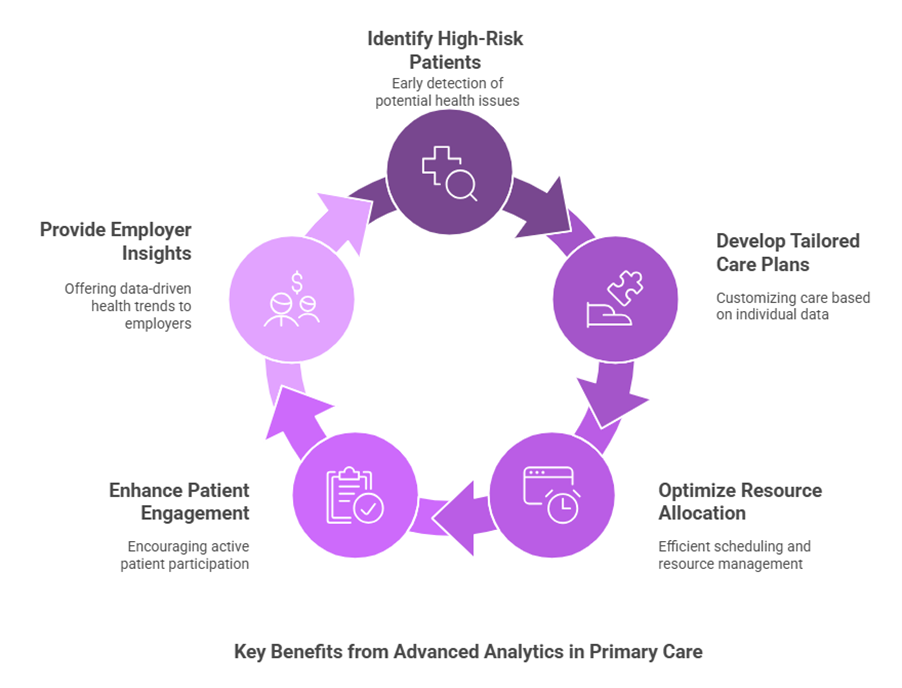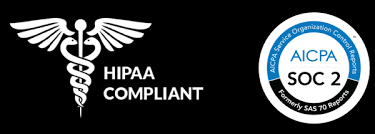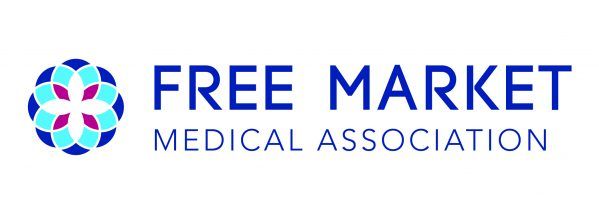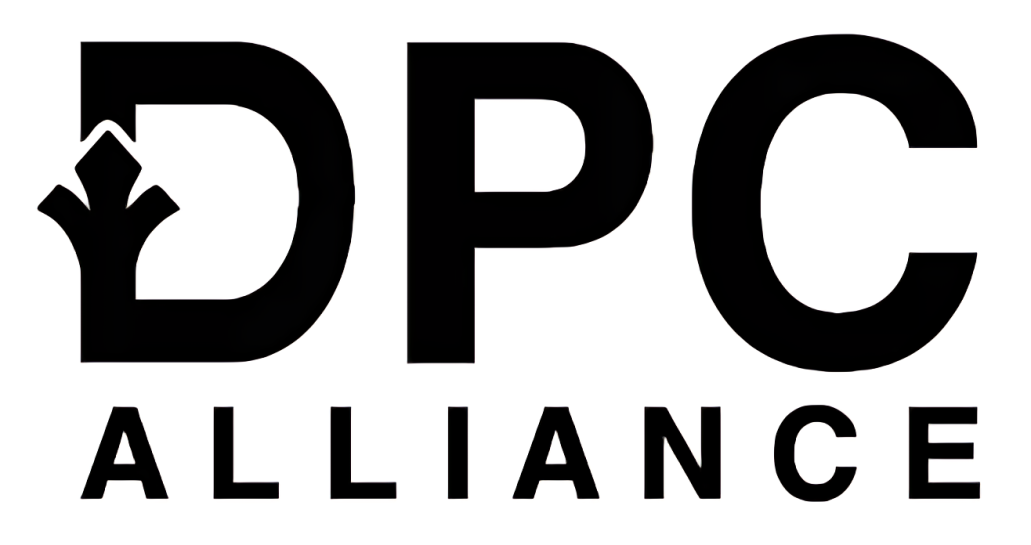Using Advanced Analytics to Manage Population Health in Primary Care Clinics

Chronic diseases account for90% of U.S. healthcare costs, a staggering burden that primary care providers can help reduce with the right tools. In the current healthcare environment, delivering high quality, affordable care to diverse patients is a big challenge. Advanced analytics is one of the best solutions available. By using data to guide decisions, primary care clinics can improve patient health, simplify operations, cut costs, and manage population health more effectively. This post explains how advanced analytics can transform primary care, especially inDirect Primary Care (DPC) settings, and offers simple solutions for healthcare providers, employers, and benefits advisors.
Why Primary Care Needs Advanced Analytics
For years, healthcare has used a one-size-fits-all approach, which often doesn't meet the unique needs of patients. This becomes a big problem in
population health management, which tries to improve health for large groups of people with different risks and conditions. To tackle this, personalized care is becoming more important, as it can address individual needs while improving overall health.
Direct Primary Care (DPC) clinics are in a great position to use advanced analytics to make care better. Unlike traditional healthcare, where visits can feel rushed and impersonal, DPC clinics focus on building long-term relationships and understanding each patient’s unique health journey. By using data from electronic health records (EHRs), surveys, and clinical results, advanced analytics can provide useful insights. These insights help doctors make smarter decisions, offer better care, and catch health problems early, leading to faster and more effective treatments. This approach could completely change how healthcare is delivered.
How Advanced Analytics Helps: Key Benefits
Here’s how analytics makes a difference in primary care:
- Spotting High-Risk Patients Early: Analytics looks at past health data to find patients at risk—think chronic illnesses, lifestyle habits, orsocial factors like income or housing. Providers can then focus on these patients to prevent emergencies and lower costs.
- Tailored Care Plans: Every patient is different. Analytics uses data like medical history and lab results to create care plans just for them, boosting engagement and long-term health, a key strength ofDPC.
- Smarter Resource Use:Predictive tools forecast busy times, helping clinics schedule staff and resources better. This cuts wait times and saves money.
- Better Patient Involvement: Analytics sends reminders for check-ups or tracks meds, helping patients take charge of their health. Engaged patients tend to have better results.
Insights for Employers: For those managingself-funded health plans, analytics shows trends like rising diabetes cases. This guideswellness programs and benefits that keep employees healthy and costs down.

A Real Example: Hint Health in Action
TakeHint Health, a platform many DPC clinics use. It pulls data from patient visits and EHRs to spot trends like which patients miss check-ups or need more support for conditions like hypertension. One clinic using Hint Health cut hospital visits by 20% in a year by focusing on high-risk patients early. This shows how analytics turns data into real results.
Putting Analytics to Work in Primary Care
The benefits of advanced analytics in primary care are clear, but implementing them effectively requires a plan. The first step is choosing an analytics tool that fits your practice’s needs and integrates seamlessly with systems like electronic health records
EHRs andpractice management software. Consider ease of use, scalability, and compatibility to ensure a smooth adoption process. Data security is equally important, as patient information must remain protected under regulations like
HIPAA. Ensuring compliance with these rules is not just a legal requirement but also a way to build trust with patients.
Platforms like
Healthcompiler offer security measures to safeguard sensitive patient data while providing actionable insights to enhance care and decision making. These tools empower providers to analyze trends, identify risk factors, and personalize treatments. With the right analytics tool, primary care practices can not only improve operational efficiency but also deliver higher quality, patient centered care.
Conclusion: The Future of Population Health
Advanced analytics is no longer optional, it is a game changer for primary care clinics serious about improving population health. It lets you catch risks early, create care plans that fit each patient, and keep people engaged in their health, all while lowering costs. For employers and benefits advisors managingself-funded health plans, it’s a way to spot trends and build smarter wellness programs that save money and boost employee well-being. As healthcare evolves, clinics that embrace analytics, especiallyDPC providers will stand out. They’ll deliver personal, high-quality care that traditional models can’t match, thanks to longer visits and a focus on prevention. The future belongs to those who use data wisely.
Ready to take the next step?Explore our solutionsto see how analytics can transform your clinic or health plan today.
About Health Compiler:
Health Compiler is a healthcare analytics platform purpose-built to help employers, Direct Primary Care (DPC) practices, and value-based care teams turn complex healthcare data into clear, actionable insights. Founded by healthtech pioneers passionate about data interoperability and care transformation, Health Compiler integrates claims, EHR, labs, and pharmacy data into a unified view to drive better health and financial outcomes.
In addition to analytics, Health Compiler offers an AI-driven Practice Growth solution and AI Voice Call Triaging software, helping practices automate patient engagement, streamline administrative workflows, and grow more efficiently.
We are proud partners with Elation Health and Hint Health, and are HIPAA and SOC 2 compliant, ensuring the highest standards of security, privacy, and trust for all our customers.




